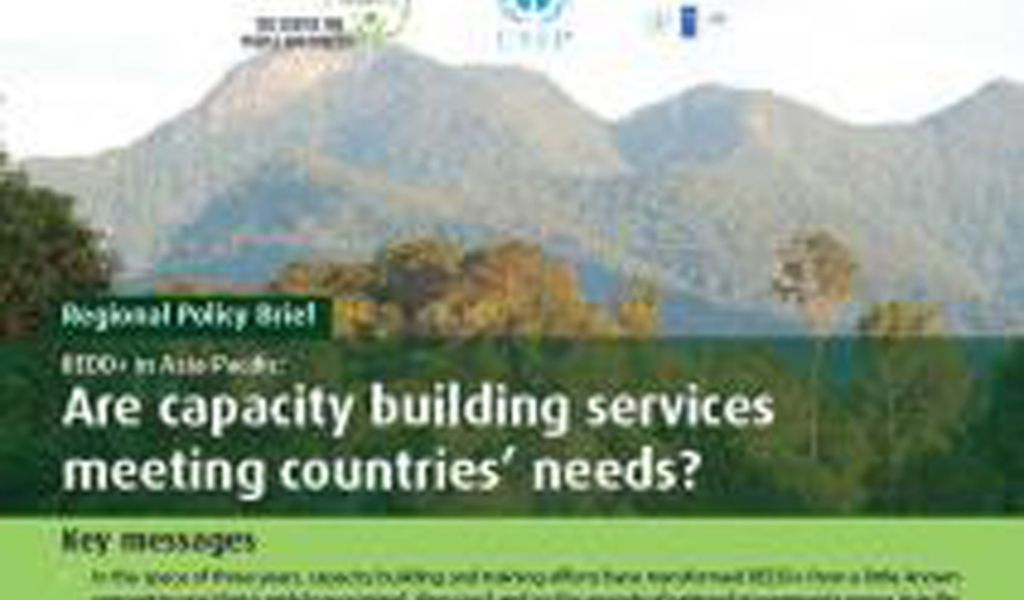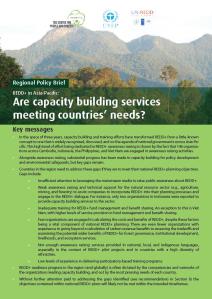Are capacity building services meeting countries’ needs in Asia-Pacific?

Today, RECOFTC, with financial and advisory support from UNEP/UN-REDD, launches the full set of four country reports for a regional assessment of the organizations providing REDD+ capacity building services in Cambodia, Indonesia, the Philippines and Viet Nam.

You may have seen the interim policy brief released for Durban last year, but now is the chance to explore the findings of the full assessment country-by-country. Accompanying the country reports is an updated policy brief, to bring together the findings from across the region.
The good news:
- 88% of the organizations in the assessment reported activities in REDD+ awareness raising, which has grown rapidly since the early days of REDD+ in 2008. The caveat is that these activities have primarily focused on policymakers, NGOs, and academia rather than forest communities, the broader public, and the private sector.
- In the past three years the capacity of local and national organizations to contribute to REDD+ policy making has grown impressively; but international consultancies and NGOs are still dominant.
- Slightly more than half of organizations reviewed are focusing on the formulation and implementation of environmental safeguards. This may be due to a high level of involvement from international conservation NGOs in the REDD+ readiness process, with a mandate for biodiversity and ecosystem service conservation.
What areas need more focus?
- Insufficient attention is being paid to leveraging the mainstream media to raise public awareness about REDD+.
- There is weak awareness raising and technical support for the natural resource sector (e.g., agriculture, mining, and forestry) to assist companies to incorporate REDD+ into their planning processes and engage in the REDD+ dialogue. For instance, only two organizations in Indonesia were reported to provide capacity building services to the sector.
- So far, training is inadequate for REDD+ fund management and benefit sharing. An exception to this is Viet Nam, with higher levels of service provision in fund management and benefit sharing.
- The format and method for REDD+ capacity building needs to be broadened beyond one-day workshops or training courses. There needs to be more focus on participant interaction and the use of longer term ‘learning groups’ and ‘action learning’ whereby participants learn new skills and knowledge through practical application.
- Not enough awareness raising services provided in national, local, and indigenous languages, especially in the context of REDD+ pilot projects and in countries with a high diversity of ethnicities.
In general terms, REDD+ readiness progress in the region (and globally) is often dictated by the competencies of the organizations leading capacity building, and not by the most pressing needs of each country. Without addressing the gaps in capacity building soon, countries run the risk of not meeting some of the core objectives of their REDD+ roadmaps and nation plans.
The full reports are available to download from the RECOFTC website.

